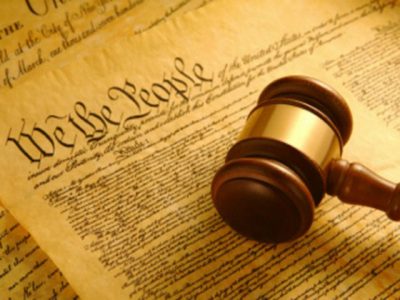Widgetized Section
Go to Admin » Appearance » Widgets » and move Gabfire Widget: Social into that MastheadOverlay zone
Thomas Jefferson, Selflessness and Public Service
The views expressed are those of the author and do not necessarily reflect the views of ASPA as an organization.
By Cody Scott
February 26, 2020

In a study exploring what public administrators saw as the core values or virtues in public administration, Anthony D. Molina found that, “Public administrators act on a combination of ethical, professional, democratic and human values as a way of maintaining legitimacy in the public service context.” The study found that the majority of administrators consider honesty, integrity, lawfulness and benevolence as their top five values with self-interest, profitability and sustainability at the bottom. The study continues by stating that, “The virtuous administrator…is the administrator who appropriately balances and shifts between these roles, given the particular contexts encountered in the course of their work.” But where did this expectation come from? Who or what set the bar for the administrators of today?
By the 18th century, the Enlightenment was growing fast, and so was thought into how a public servant should behave. The likes of John Locke, Baron de Montesquieu, and Algernon Sidney all agreed that leaders should pursue common good and selfless service rather than aspiring to personal fame and fortune. Montesquiee asserted in Spirit of the Laws that leaders should have, “The single desire, the single happiness, of rendering greater services to one’s homeland.” In Discourses concerning Government, Sidney agreed and added that leaders should not hold power, “For his own pleasure, glory or profit, but for the good of those that are under him.”
Just as the Enlightenment was brought to and popularized in America by the founding fathers, so too was the virtue of selflessness in public service. It is an apparent trait in big names like George Washington and John Adams, but no better example is given than by Thomas Jefferson in his dealings in the revolution and service thereafter. The Enlightenment was a major spark in the great new experiment that was America. Here, the founding fathers created a relatively new system of government where people can lead or represent others based on the will of the people rather than by privilege or lineage. This leaves the question of service into new light. How should a public servant behave? The example from early administrators created a lasting legacy of selflessness which still remains in the public sector today and the best example of this virtue is of Thomas Jefferson’s selfless service.
Thomas Jefferson is now known as the writer of the Declaration of Independence and played an important role in the creation of the country as we know it. But he did not act pridefully or for his own self-interest. His efforts for freedom was often unknown to most at the time. Even his authorship was unknown to most Americans at the time of its creation. In fact, the recent book by Robert McDonald Confounding Father, paints a picture of a man who was acting as a literal servant of the public. McDonald notes that Jefferson often described himself as a most unlikely candidate for, “Prominence or contentious debate,” and describes his own efforts as, “Not made for public detail. They are best in the shade: the light of the picture is justly occupied by others. To glide unnoticed tro’ a silent execution of duty is the only ambition which becomes me, and it is the sincere desire of my heart.” Jefferson was raised in a relatively privileged household and could have done anything he wanted. He recalls asking himself as a child, “Which of these kinds of reputations should I prefer? That of a horse jockey? A fox hunter? An orator? Or the honest advocate of my country’s rights?” He resolved, “to the prudent selection and steady pursuit of what is right,” Luckily, Mr. Jefferson chose the latter.
In the fragile and uneasy days of the republic in its infancy, it would have been all too easy for those like Washington or Jefferson to claim power for themselves. But the legacy they left is an expectation of selfless service something that may not be considered much today, but is repeated for the same reason: commitment to those we serve.
Author: Cody Scott is currently an MPA student at Stephen F Austin State University in Nacogdoches, Texas. His main interest is in how philosophy, human behavior, and history applies and gives better insight into the field of governance and public administration. He can be contacted anytime at [email protected]


 (3 votes, average: 4.33 out of 5)
(3 votes, average: 4.33 out of 5)
Burden Lundgren
February 29, 2020 at 3:26 pm
I find it hard to admire a man who not only owned slaves, but sexually abused them – and who also left women out of the Constitution. Selflessness in the name of white males everywhere.